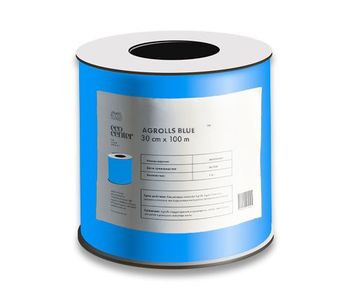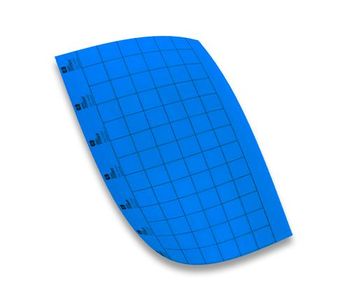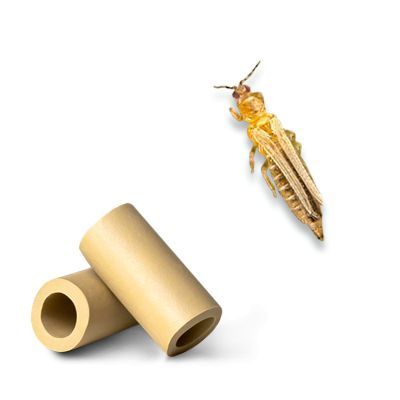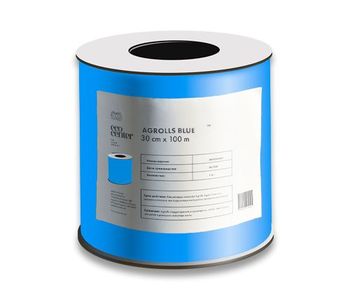Frankliniella occidentalis lures
Frankliniella occidentalis lure is a component of an insect trapping device, that uses pheromones to lure Western flower thrips into a trap.
The lure, in the form of the rubber dispenser, that contains pheromone of Western flower thrips, must be placed in a trap to be fully functional (traps can be bought separately or in kits with lures).
Using such pheromone lures is an economic, environmentally sound approach to either monitor or trap these pests.
The lures in the traps must be replaced every 4-6 weeks to keep attraction rates high.
Shelf life - up to 2 years (optimum conditions).
| # | SKU / Title | Price | |
|---|---|---|---|
| 1 |
ec07020096-2
|
||
Product Description
Frankliniella occidentalis lure is a component of an insect trapping device, that uses pheromones to lure Western flower thrips into a trap.
The lure, in the form of the rubber dispenser, that contains pheromone of Western flower thrips, must be placed in a trap to be fully functional (traps can be bought separately or in kits with lures).
Using such pheromone lures is an economic, environmentally sound approach to either monitor or trap these pests.
The lures in the traps must be replaced every 4-6 weeks to keep attraction rates high.
Shelf life - up to 2 years (optimum conditions).
When to use
| Jan | Feb | Mar | Apr | May | Jun | Jul | Aug | Sept | Oct | Nov | Dec |
|---|---|---|---|---|---|---|---|---|---|---|---|
Carrier
Rubber dispenser.
Longevity
4-6 weeks once opened. May vary depending on climate.
How to use
- Take out the pheromone lure from its foil pouch just before use and place it on the trap (following Trap Use instructions).
- Do not place lures unprotected in direct sun.
- Please keep in mind that the disposal of the wrapping should be done away from the monitoring area.
Positioning
Placement of the trap varies depending on the host plant.
Positioning Density
For monitoring purposes - 2-3 traps should be deployed per 1 hectare.
Storing
Pheromone lures should be stored in a cool, dry place, away from sunlight. For optimal conservation over extended periods, refrigeration is recommended. When refrigerated, the product can be stored for up to 24 months.
Replacement
Replace every 4-6 weeks or as recommended by the agricultural authorities. Please keep in mind that the disposal of the old pheromone
dispensers should be done away from the monitoring area, to avoid interference with the monitoring process.
Precautions
Handle with care. To prevent cross-contamination with other products, it is recommended to wear gloves when handling the product and to thoroughly wash hands before and after handling the lures.
Packaging
The lures are wrapped in an airtight foil pouch (to protect it from sunlight and contamination). Each pheromone lure contains 3 mg of ready to use blend.
Suitable Items
Agrolls Blue BIODEGRADABLE
Agrolls Bluе are used mainly in greenhouses to capture Frankliniella occidentalis.
This trap should bе deployed in areas with present or anticipated high pest prevalence.
These areas should allow proper airflow, for example along ventilation sections, doors, in between columns or other structural elements, etc.
Pests are attracted to the bluе color of the sticky tape, thus getting caught in the glue.
This trapping device, used in greenhouses, is in the form of a blue sticky tape roll, pre-coated on both sides with an entomological adhesive.
Agrolls uses visual cue (blue color) to attract, monitor and capture of pest insects.
This trap is 100% biodegradable.

Card Cue Blue
This biodegradable adhesive trap, in the shape of a card, contains entomological adhesive on both sides and is a reliable and efficient choice to monitor a variety of pest insects, such as Frankliniella occidentalis.
Card Cue uses proven visual attractant (blue color) to draw pest insects towards the adhesive surface of the trap.
Card Cue Blue allows its users to assess the level of pest pressure, understand pest lifecycle, as well as determine the necessity for further pest management actions.

Properties
Non-toxic - this product doesn’t contain toxic chemicals.
Recycled materials - recycled materials are used to manufacture this product.
Safe for Human - effective, not-toxic pest control solution, that is completely safe for use around humans.
Caution
Keep the product out of reach of children and pets.
Notice
To the extent consistent with applicable law, buyer assumes all responsibility for safety and use not in accordance with directions.
Disclaimer
The instructions provided serve as general guidance and are designed for informational purposes. Actual usage guidelines may differ based on factors such as climate, crop type, and pest infestation severity. For tailored advice, please reach out to Eco Center specialists or authorized distributors.




